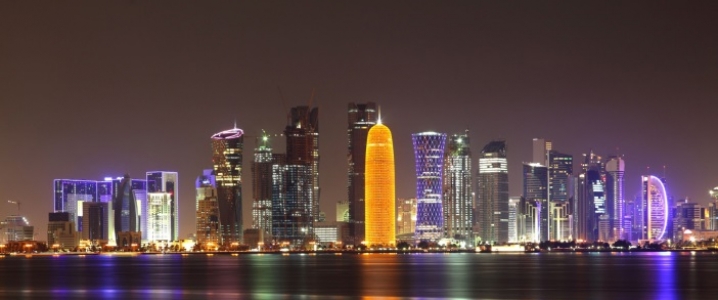On November 7 Sheikh Mohammed bin Abdulrahman bin Jassim Al Thani, the deputy prime minister and minister of foreign affairs, announced that Doha was looking to expand trade and investment ties with Iraq.
Local media reported that the two parties proposed greater maritime cooperation by establishing direct shipping lines and relationships between ports.
The government visit to Baghdad followed the September 4 signing of a commercial and economic cooperation agreement with Turkey, intended to promote bilateral trade, particularly in the services and e-commerce sectors, and ease restrictions on investment.
The Turkey deal also foresees the development of closer ties in Customs, research and development, and education, and builds on increasing trade between the two countries.
Qatar-Turkey bilateral trade volumes increased from $835m in 2016 to $1.3bn last year, according to data issued by the Turkish Ministry of Foreign Affairs at the end of October. Meanwhile, two-way trade in the first half of 2018 was valued at $695m, on track to surpass the year-end 2017 total.
“There is much interest from foreign companies – particularly from Turkey – in the Qatari market as it is generally seen as a stable investment destination with high confidence in the legal system,” Hamdi Gunes, country manager of Turkish construction company Limak, told OBG. “These conditions will help Qatar increase foreign direct investment inflows.”
Trade figures rise on the back of realignment
The increase in trade with Turkey and efforts to boost ties with Iraq form part of Qatar’s strategy to diversify its trading partners following the implementation of an embargo by Saudi Arabia and some other regional neighbours in June last year.
Along with a greater focus on increasing domestic manufacturing, improvements to port handling efficiency and the September 2017 inauguration of Hamad Port, which is expected to become the country’s main maritime logistics hub, have helped improve the flow of inward and outward shipments. Related: Shell: EV Demand To Grow Regardless Of Oil Prices
Exports in the first nine months of the year totaled QR227.1bn ($62.4bn), up 28.2 percent year-on-year, according to data issued by the Ministry of Development Planning and Statistics (MDPS), while the trade surplus was QR140.6bn ($38.6bn), 39.2 percent higher than the same period in 2017.
The diversification strategy has also led to a realignment of the trade mix. While business with the GCC has dropped from 11.1 percent of overall trade in the first half of last year to 3.9 percent in the corresponding period in 2018, trade with Asia – led by Japan, South Korea and China, but which also includes Turkey – increased to account for 69.5 percent of total trade in the first half of the year, up from the 61 percent recorded in the same period in 2017.
In particular, business with China has expanded significantly in recent years, with the country now Qatar’s third-largest individual trading partner, accounting for 11.6 percent of total trade.
Elsewhere, activity with the EU remained largely steady, dropping slightly from 16.2 percent to 15.2 percent of the overall mix, while Qatari-US trade rose from 4.4 percent to 5.5 percent.
These solid gains have also fed into GDP growth, with the economy expanding by 2.2 percent y-o-y over the first half of the year, according to the MPDS. Related: Three Reasons Why LNG Prices In Asia Are Plunging
In its latest economic outlook report for the Middle East and Central Asia, released on November 12, the IMF said the effect of the economic blockade on Qatar had been contained, and that the economy would expand by 2.7 percent this year and 2.8 percent next, building on the 1.6 percent experienced in 2017.
New free zones to facilitate re-export growth
These positive figures should be further supported by the launch of two new free zones early next year, which are expected to boost the re-export of goods.
The Um Al Houl special economic zone, located at Hamad Port, and the Ras Bunfontas free zone, next to Hamad International Airport, have been developed to support export and re-export traffic, as well as industrial activity.
Qatar has already laid the groundwork for the re-export trade, with the General Authority of Customs unveiling a new service to facilitate and regulate operations in February. Under the new regulations, a range of goods – including vehicles, automotive equipment, machinery, infrastructure and construction materials, electric appliances and jewellery – can be imported for the purpose of re-export, subject to certain terms and conditions, such as bank guarantees and minimum trade volumes.
More Top Reads From Oilprice.com:
- Saudis Won’t Cut Oil Production On Their Own
- Is The Trade War Coming To An End?
- The Biggest Winners Of The Oil Price Slump


















